Indigenous Governance Database
Governance

Wisdom From Mel: It's Okay to Not Know Everything
Mel Tonasket was not formally educated but he had lobbied and negotiated with Congressman and Senators. When Mel was in Washington D.C. he heard the fancy words from the Solicitors office. He was determined to fight for tribes and not let the “Suyapees” (Anglos) get the best of us — so when he…
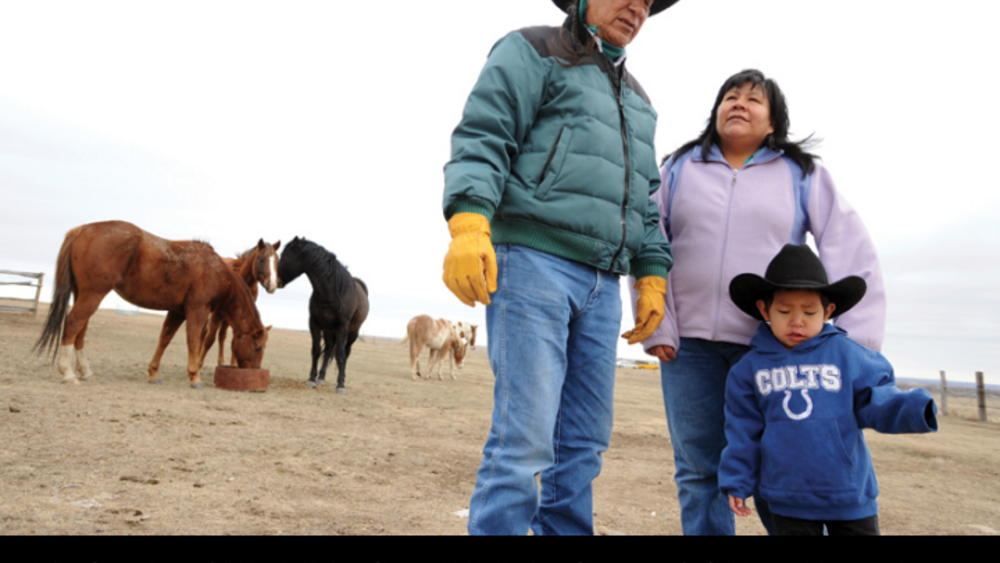
Blood Quantum: A complicated system that determines tribal membership threatens the future of American Indians
Ryan Padraza Comes Last is a full-blooded Indian, Sioux and Cheyenne on his father's side and Assiniboine on his mother's. He will soon receive his Lakota name: "A Rope." (Comes Last raises rodeo horses and always has a rope in his right hand. He likes to call Ryan his "right-hand man.") But…

Red Cliff Chippewa Band Re-Dredges 55-Gallon Drums of Live World War 2 Ammo From Lake Superior
The Red Cliff Band of Lake Superior Chippewa is having another go at the munitions barrels dumped into their waters by the Army Corps of Engineers during the Cold War years. Nearly 1,500 55-gallon drums were interred beneath the lake on orders of the U.S. Department of Defense from 1959 to 1962.…

How Tribes Can Prepare for Tribal Sovereignty Blow From Supreme Court
In the first part of this two-part series, we provided a short history of the upcoming U.S. Supreme Court case State of Michigan v. Bay Mills Indian Community, discussed its relevance to the sustainability of the legal doctrine of tribal sovereign immunity, and detailed two potential outcomes of…
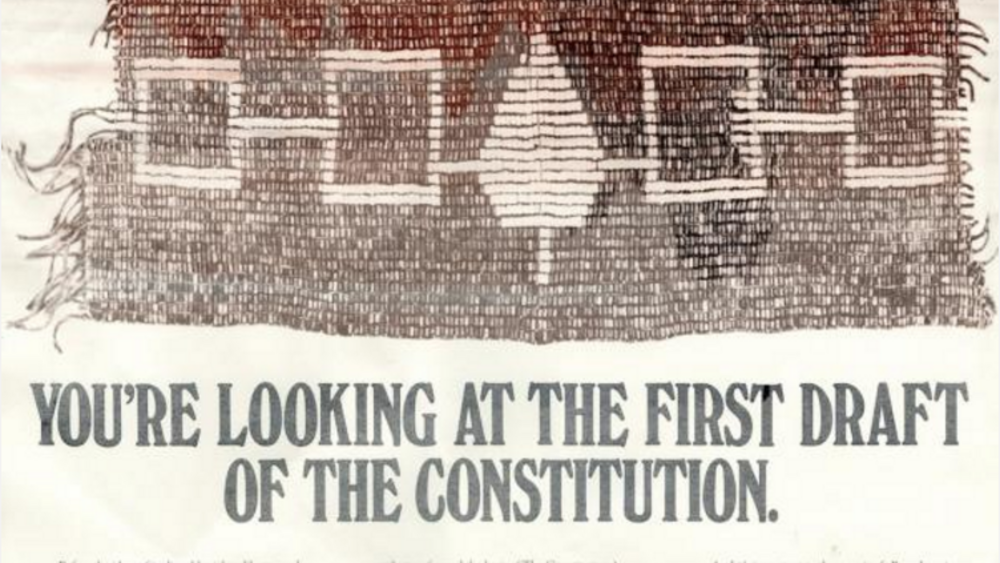
Kin-Based Governments Can Be Successful and Profitable
A key to understanding American Indian nations, and Indigenous Peoples in general, is local community organization. Local groups, as basic building blocks of indigenous nations, play a powerful role in tribal or national consensus building and decision-making. The ways that local indigenous groups…
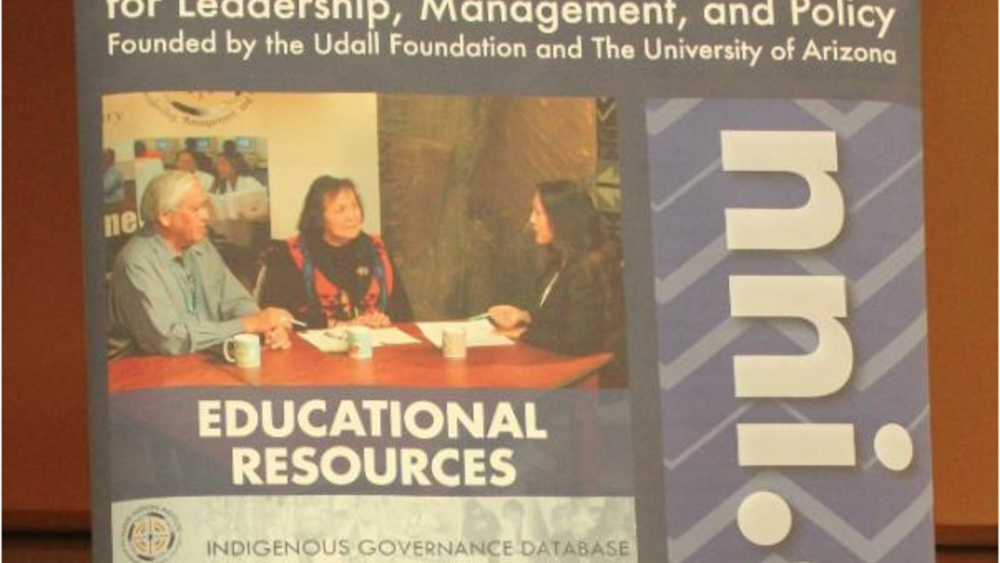
Educating Indian Country's Future Leaders
To grapple with the concept of good leaders and how to become one, 100 attendees–newly-elected and aspiring leaders from Native Nations–gathered in Tucson, Arizona November 6-7 for a specifically-developed Executive Education Seminar titled, "Emerging Leaders." Developed by the Native Nations…

Tribes Recondition Steelhead to Bring Back Endangered Trout
The notion of “reconditioning steelhead” might sound outlandish, even a bit ominous, at least when applied to an animal. Reconditioning is what’s done to prepare discarded electronics for resale, and the word carries connotations of recycling. How does one recycle a fish? It turns out, though, to…
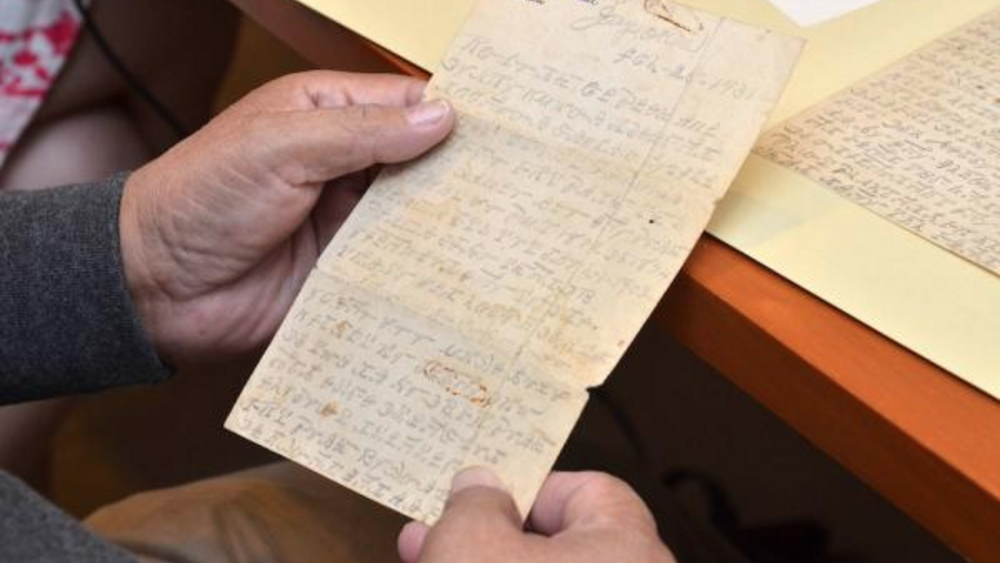
Keeping Language Alive: Cherokee Letters Being Translated for Yale
Century-old journals, political messages and medicinal formulas handwritten in Cherokee and archived at Yale University are being translated for the first time. The Cherokee Nation is among a small few, if not the only tribe, that has a language translation department who contracts with Apple,…

The Bay Mills Buck Stops With NIGC
With a case of potentially catastrophic consequence for Indian country now pending before the U.S. Supreme Court, all of the players who can possibly prevent the disaster are either sitting on their hands or pointing fingers. The National Indian Gaming Commission has failed to act, citing a…

Indian Education Must Support Dual Citizenship, Nation-building
In contemporary nation states education is a key institution for the socialization and creation of citizens. Schools are designed to provide common rules of civic understanding and responsibilities. Students are taught to understand the history, goals, and functioning of government. In many ways,…

CDFI Fund Awards Indian Land Capital Company its Third $750K Award
For the third year in a row, Indian Land Capital Company (ILCC), an American Indian-owned and -managed Native Community Development Financial Institution (Native CDFI) and leader in the tribal land financing and acquisition movement, has received the highest tier financial award, $750,000, from the…

DOJ Grants Muscogee Creek Nation $3.78 Million for Ex-Prisoner Reintegration Program
The Muscogee Creek Nation has received $3.78 million from the U.S. Department of Justice for the tribe’s Reintegration Program (RIP), which assists tribal citizens who have served time in a correctional facility and are ready to be welcomed back into society. The grant will go towards the…
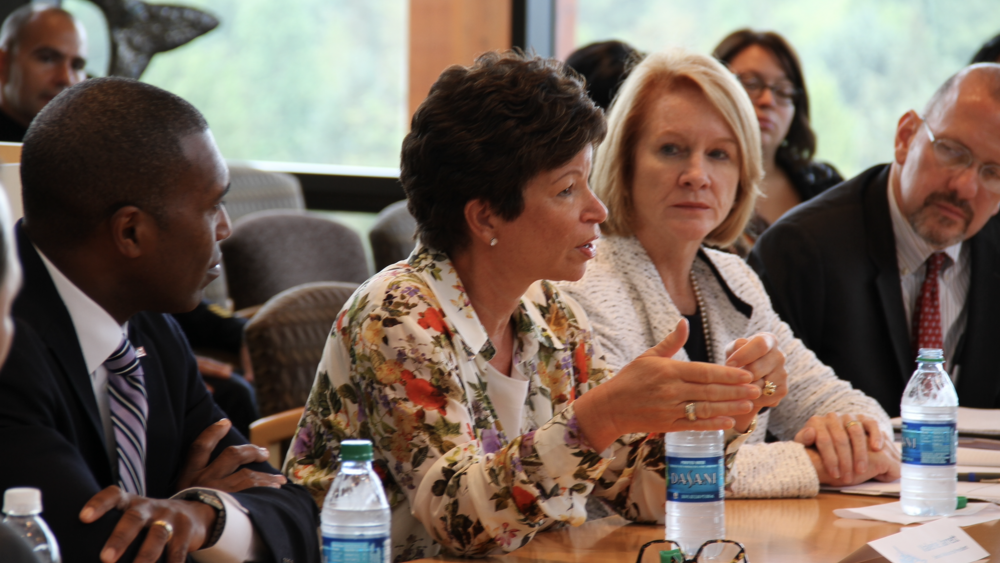
Health, Innovation and the Promise of VAWA 2013 in Indian Country
Yesterday morning, we made our way north from Seattle, past gorgeous waterways, and lush greenery to visit with the Tulalip Tribes of western Washington, where we were greeted by Tribal Chairman Mel Sheldon, Vice Chairwoman Deb Parker, and Chief Judge Theresa Pouley. We saw first-hand, a tribal…

Gerald Sherman, ILCC Native American Financing Pioneer, Receives Prestigious 'Visionary Leader Award'
Gerald Sherman (Oglala Lakota), a pioneer in developing financial products for disadvantaged and underserved Native communities, received the prestigious ‘Visionary Leader Award for Outstanding Achievement’ at the 10th Annual Native Community Development Financial Institution (CDFI) Convening…
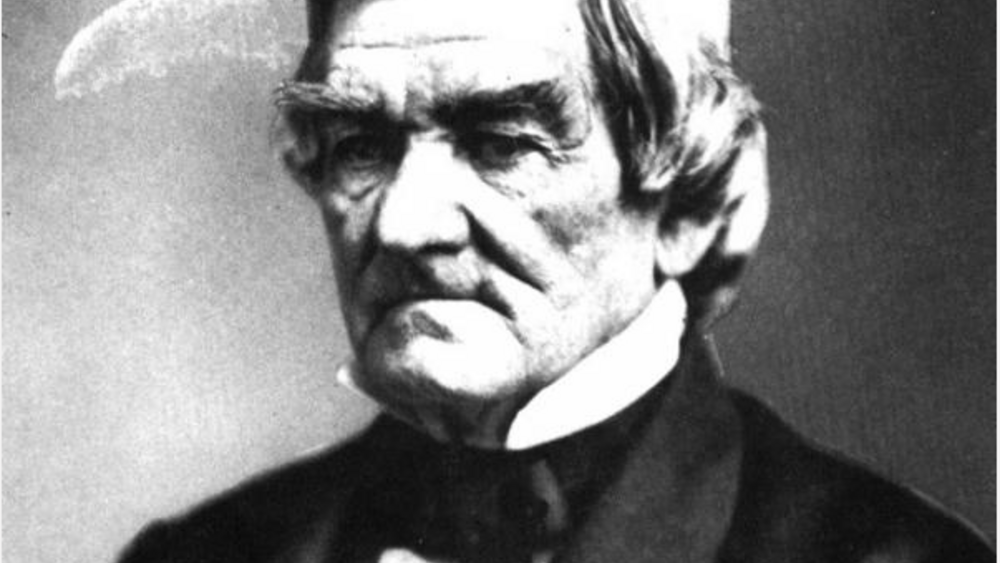
How Does Tribal Leadership Compare to Parliamentary Leadership?
Many traditional American Indian governments have significant organizational similarities with contemporary parliamentary governments around the world. A key similarity is that leadership serves only as long as there is supporting political consensus or confidence that the leader or leadership…
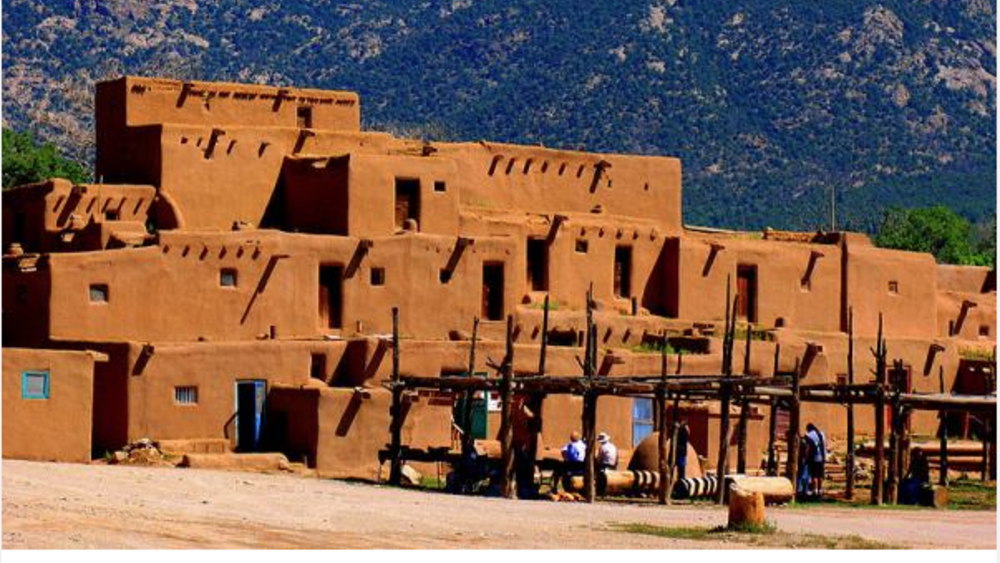
Indigenous Nations Have the Right to Choose: Renewal or Contract
When making significant change Indigenous nations make choices about whether to build on traditions or to adopt new forms of government, economy, culture or community. Many changes are external and often forced upon contemporary Indigenous Peoples. Adapting to competitive markets, or new…
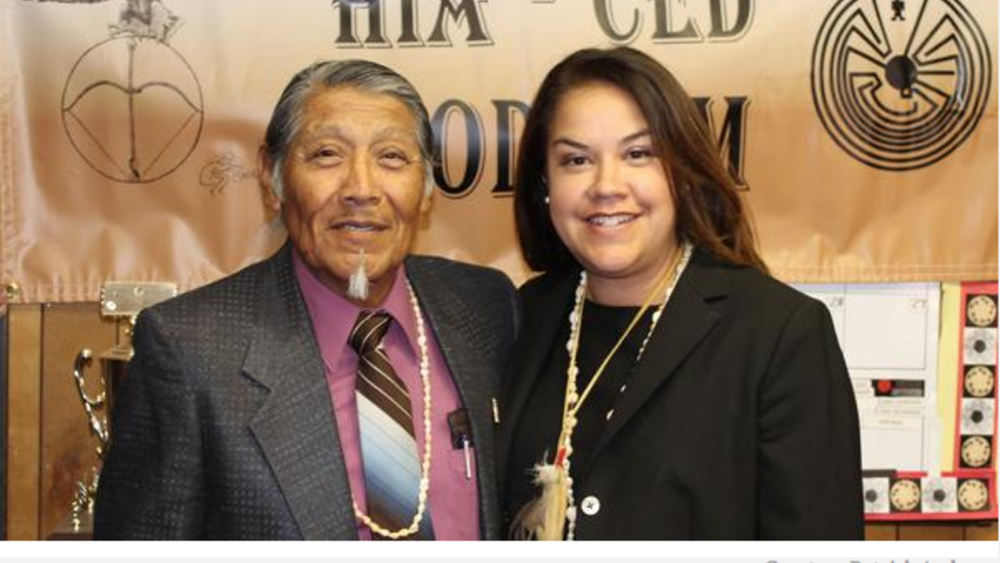
Extinct No More: Hia-Ced O'odham Officially Join Tohono O'odham Nation
After 33 years of hard work to right the past, the Hia-Ced O’odham, once thought to be extinct, can finally say they belong as part of the Tohono O’odham Nation. On June 12, the Hia-Ced O’odham District officials were sworn-in and the Hia-Ced District was officially recognized as the 12th district…

No Tribes Left Behind: A Smarter Plan for Economic Development
Many Americans have never been to a Native American reservation. They’re often geographically isolated and underdeveloped, perpetually left off the various lists of tourism destinations. With sparse and scattered populations, tribal governments have faced many obstacles in exploring economic…

Key to Indian Development: Self-Government
Beginning late in the last century, the economies of Indian nations in the United States began recording a remarkable turnaround. Since the early 1990s, per capita income on Native American reservations has grown three times faster than have incomes in the nation as a whole. American Indians are…

How Tribal Leaders Are Creating Jobs
The New Markets Tax Credit (NMTC) has provided a vital spark to infrastructure and economic development projects across Indian country. Momentum has been building over the past several years but because of recent federal agency actions, and now tax-related Congressional bickering, it is in danger…
Pagination
- First page
- …
- 26
- 27
- 28
- …
- Last page
